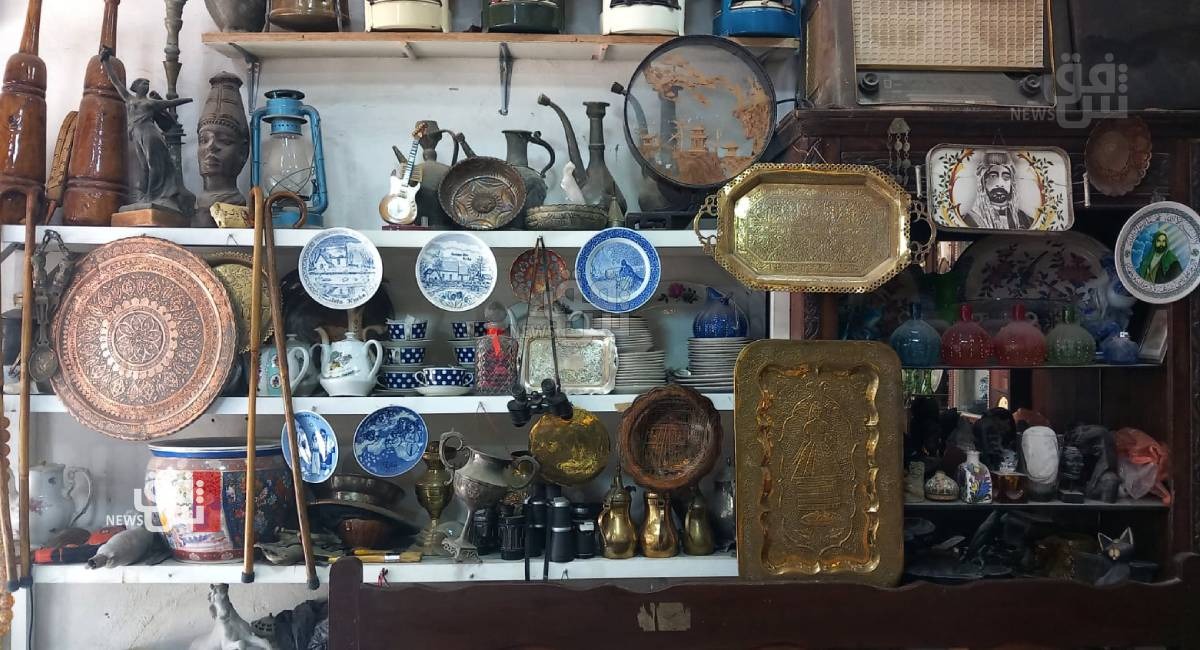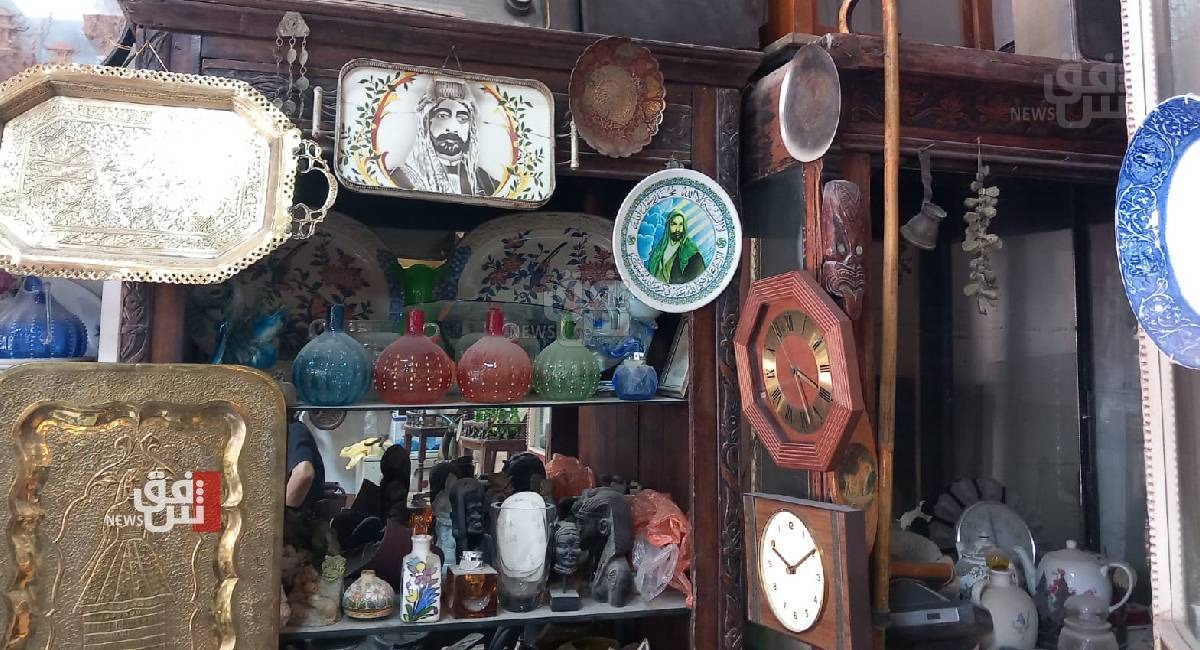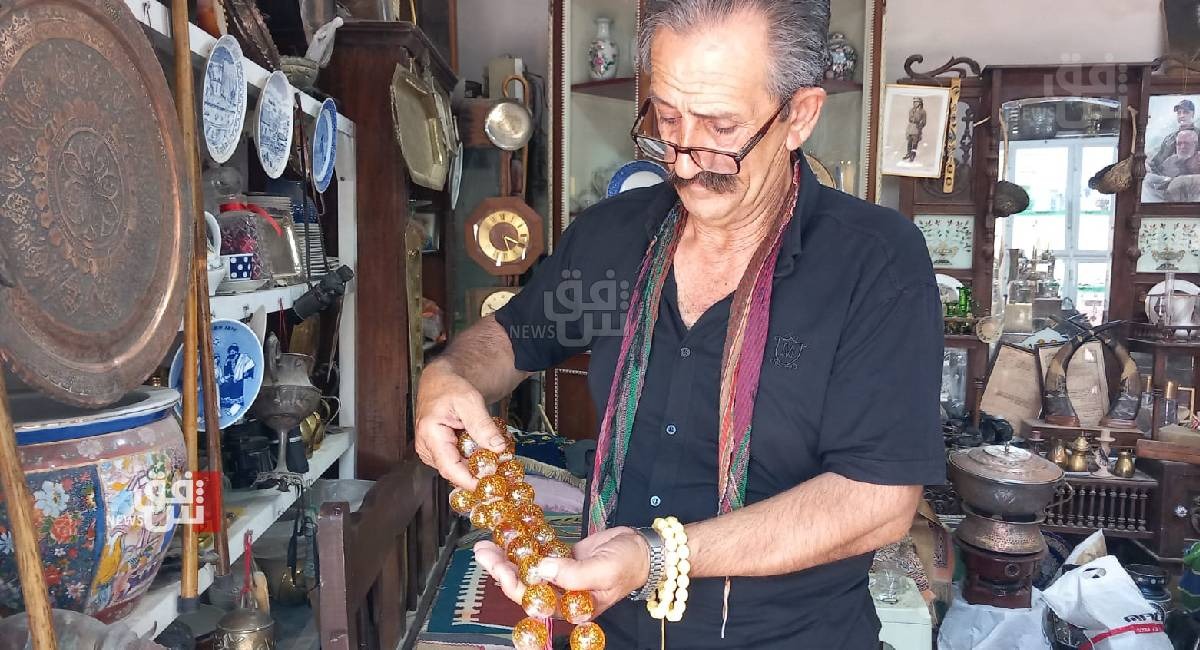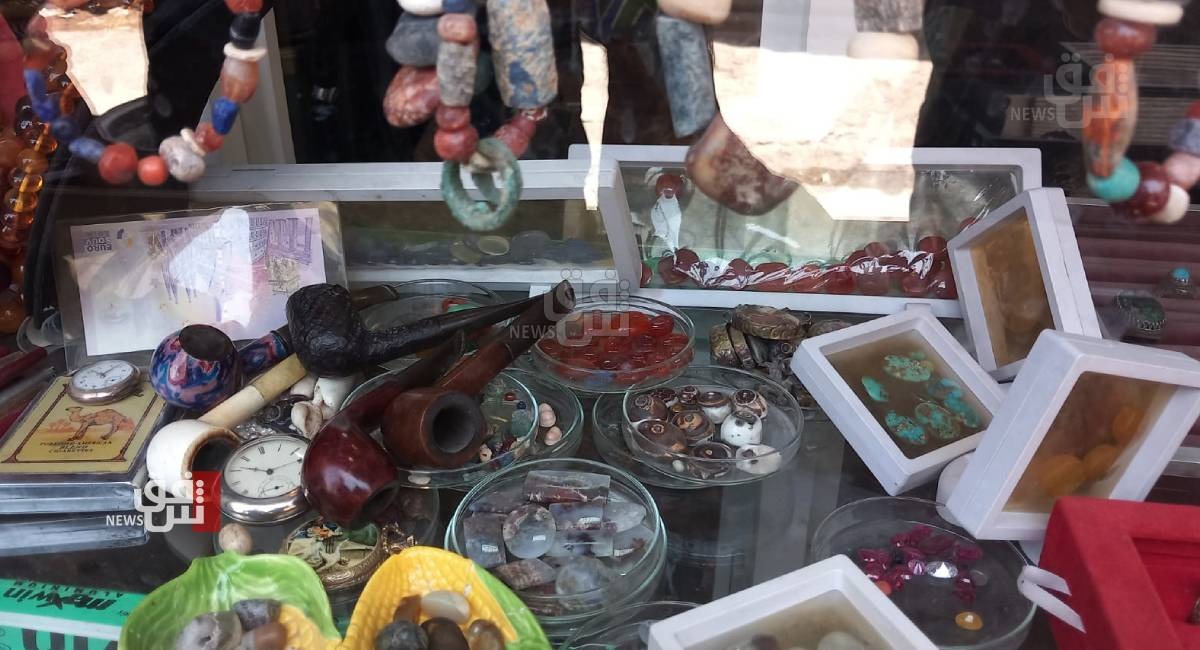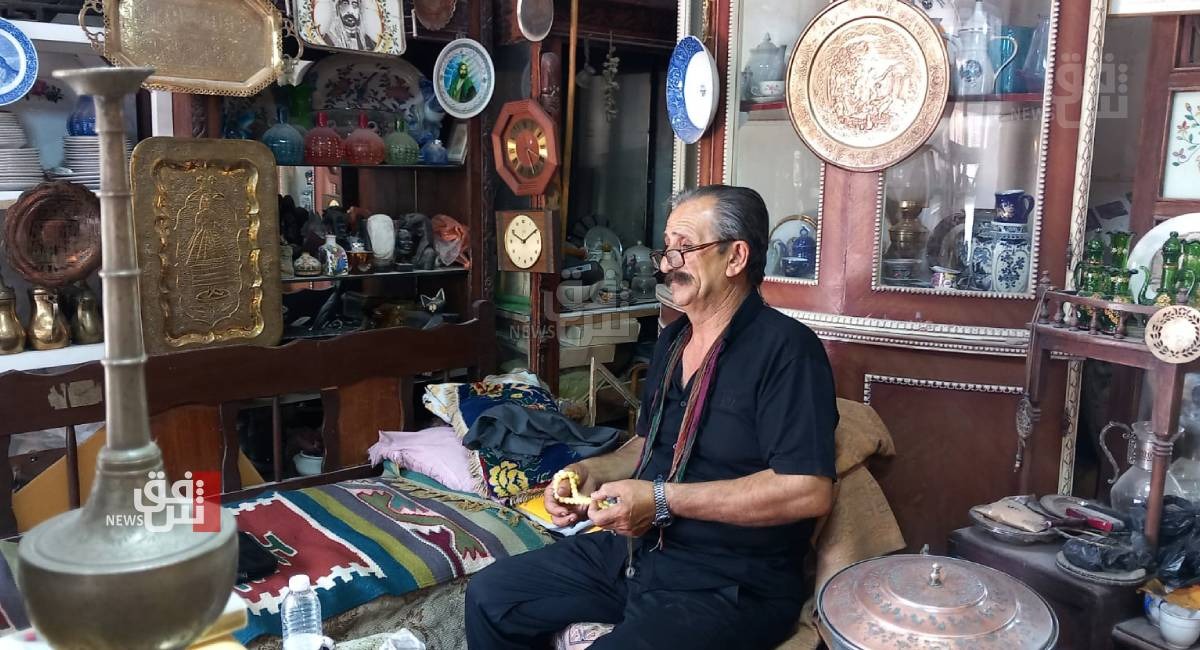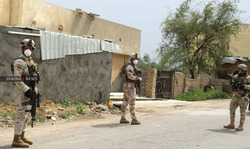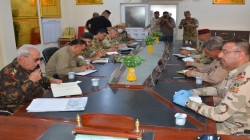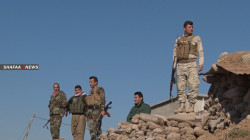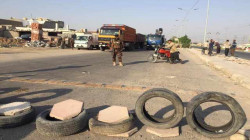The last man of "Antiques" tells his story of "guarding" Baquba's cultural heritage
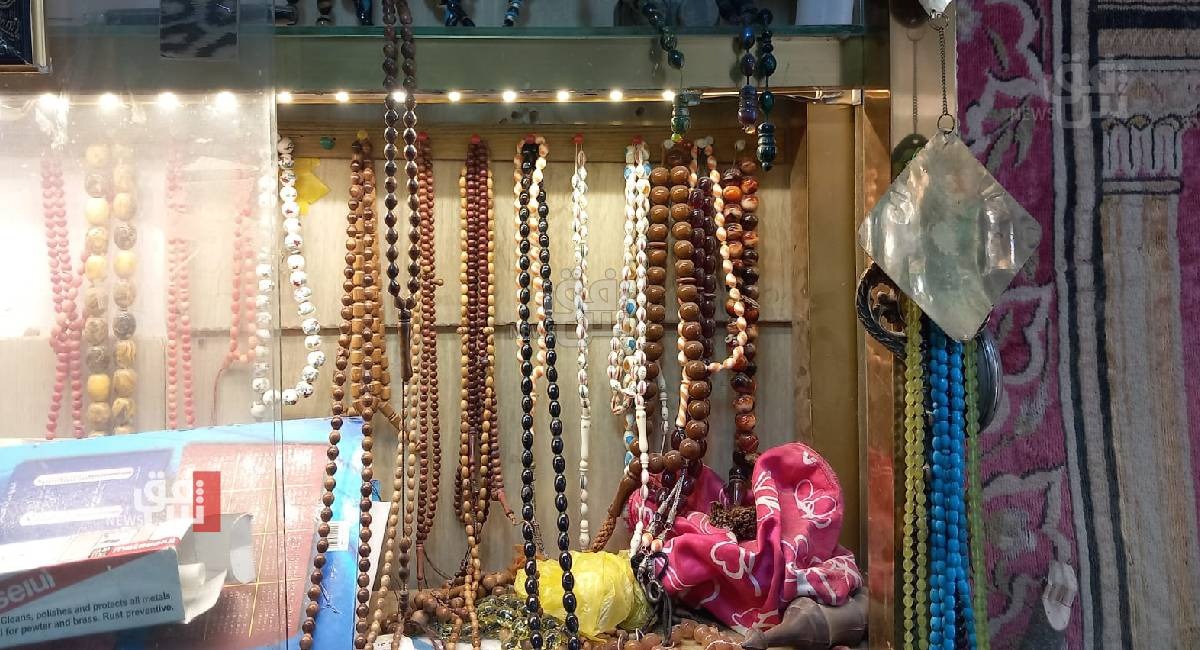
Shafaq News / In the middle of a small shop in the heart of the old city of Baquba, the center of Diyala governorate, sits 62-year-old Abu Ali surrounded by heritage artefacts and valuable objects, as well as archaeological models from various historical eras.
Fouad al-Salhi - Abu Ali - is the last surviving member of this profession that has gone extinct in Diyala and other governorates. He told Shafaq News Agency that he is determined to keep his "antiques" shop open in order to preserve a heritage representing Diyala and other Iraqi cultures.
He inagurated his shop in the 1990s during the difficult years of the economic blockade, where he was drawn to collecting rare antiques, gem stones, war and household tools, and other items.
He stated that he is the last "antiques" seller in Baquba, and that his shop is still frequented by intellectuals and people from different classes of society who enjoy collecting antiques.
Al-Salhi's shop contains archaeological symbolic objects documenting cultural eras dating back hundreds and thousands of years, in addition to expensive modern artifacts, most notably Russian and tsarist crystals, daggers and ancient swords, in addition to banknotes and heritage anecdotes such as plates, shields, and others.
His shop also contains a different types of misbahas and precious and rare stones, some of which cost up to $ 10,000, as well as other stones ranging in price from tens to hundreds of thousands of dollars.
Abu Ali said that he continues his hobby of collecting antiques in order to preserve the historical heritage to shed light on different eras of Iraq's ancient and modern history.
